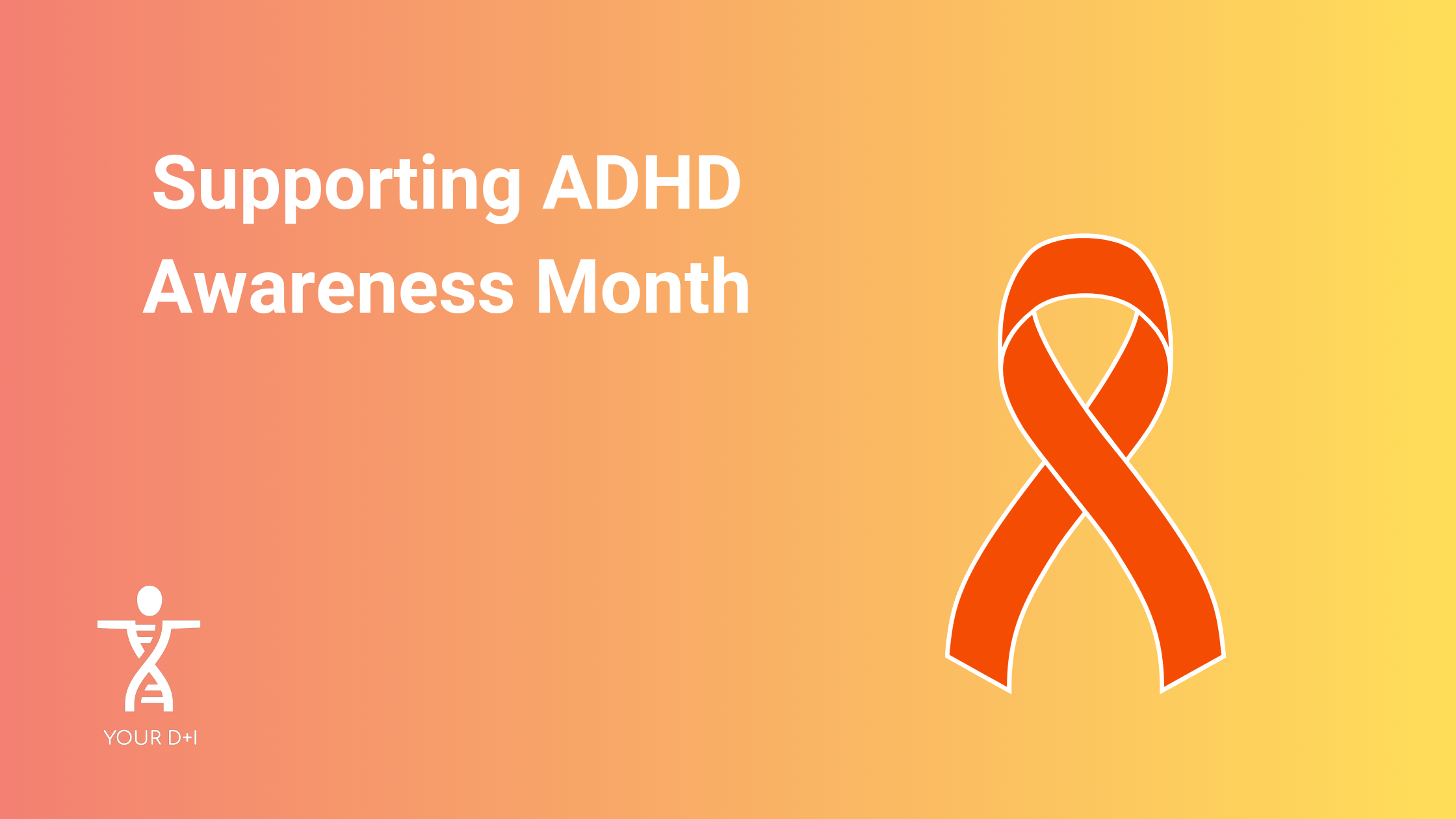ADHD (Attention Deficit Hyperactivity Disorder) is often stereotyped. It’s a common mistake that it only impacts children and primarily makes them act in an hyperactive manner. Just like many conditions, people can experience different symptoms. This actually makes ADHD in adults harder to detect and sometimes goes under the radar completely.
We’d like to shine a light on the myths, facts and how to be a support network. Not only this ADHD Awareness Month but all year round.
What is ADHD?
ADHD is a neurodiversity disorder that can impact anyone, regardless of age. It is often diagnosed at a younger age and may not even be detected in adults. In fact 2.8% of adults have ADHD but 6.7% (360 million globally) have it if including those without a childhood diagnosis.
It is a neurodevelopmental syndrome that is highly genetic and impacts brain functions associated with particular behaviours. Concentrating, issues with memory, impulsivity, hyperactivity, organisation and difficulty with social skills are a few of these behaviours affected.
There’s a stigma that children who are slightly hyper or who may find it hard to concentrate may have ADHD. However, it can actually be pretty difficult to diagnose, but there are particular symptoms to look out for. The disorder is often diagnosed by working with a healthcare professional. Interview procedures, behaviour and symptom rating skills and observations are just a few techniques used.
ADHD Symptoms
No two cases of ADHD are the exact same just like many disorders. The symptoms can also be different amongst children and adults. A few common symptoms though are:
- Difficulty with concentration levels
- Poor organisation skills or task prioritisation
- Restlessness
- Losing or misplacing things easily
- Easily short-tempered or angered
- Interrupting others
- Difficulty in completing a task before moving on to the next
- Issues with memory
- Feeling nervous or anxious
This list is in no way comprehensive. As you can see there are many symptoms and some individuals may experience some and not others. This is why the disorder is seen as pretty complex. It’s also theorised that ADHD can’t be developed in adulthood, unless it was already developed during childhood. This is also often a reason why adults don’t even realise or recognise that they have it. It is often easier to spot signs and symptoms in a child than in an adult.
Raising ADHD Awareness
Behavioural training, counselling and medication are just a few treatments used. The condition isn’t something that can be ‘cured’ but can definitely be managed and treated. The majority of adults with ADHD can function daily without being impacted. For others, it can become more difficult and it can take time to decide what actions to take.
ADHD can still be recognised as a disability under the 2010 Equality Act. Many individuals also stress the lack of support or understanding in the workplace. Unfortunately, stigma is still really common when it comes to ADHD. This is why it’s crucial to make adjustments to ensure that not only are employees supported and understood, that you also get the most out of them.
Strengths of ADHD
- Willingness to take risks
- Hyperfocus on specific interests
- Spontaneous and flexible
- Creative mindset and ability to think differently
- Motivated by short term deadlines
- Good eye for detail
- Optimistic in stressful situations
Adjustments & Modifications
- Earlier or later start times can help to ease stress and shows flexibility and understanding
- Delegation of specific tasks that may not be seen as priority
- Visual prompts such as post-it notes, wall charts and checklists
- Reducing distractions and providing ambient noise or enabling own space if possible
- Meeting notes to be given in writing as well as verbally
- Allow regular breaks or intervals in between tasks
- Offer regular check-ins or supervision to ensure they feel supported
Some individuals may not want to disclose to others that they have ADHD. You should always discuss this with your employees in confidentiality.
Supporting ADHD Awareness Month
ADHD is often misunderstood. This Attention Deficit Awareness Month, be open to discussions with neurodivergent people. Attend webinars, read resources and educate yourself and others in your business. There’s so many great resources out there and showing awareness may just change the way someone in your business with ADHD may feel.
Here’s some great resources to help with ADHD awareness and education:
Delivered from Distraction: Getting the Most out of Life with Attention Deficit Disorder by Dr Edward Hallowell & Dr John Ratey
How to ADHD - Jessica McCabe’s YouTube Channel
If you want to know more about reasonable adjustments that you can make or require more support on ADHD, then Get in touch with us. We provide a variety of workshops, audits and support so you’re never alone when it comes to inclusivity awareness.
*Sources: https://www.adhdcentre.co.uk/how-adhd-is-affecting-my-work-performance/

